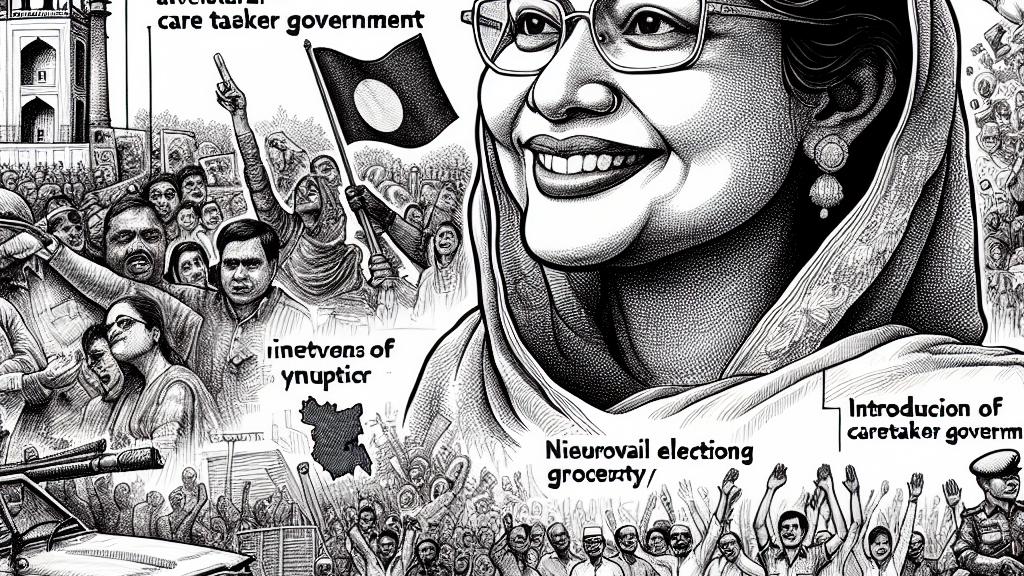Sheikh Hasina: From Champion of Democracy to Autocratic Exile - A Political Saga
Overview
- Sheikh Hasina resigns amidst massive student protests in Bangladesh.
- Her government faces backlash for oppressive measures and controversial job quotas.
- The legacy of Hasina reflects a troubling transition from democratic leader to autocrat.

Sheikh Hasina's Political Ascent
Sheikh Hasina, born into a politically influential family, began her journey as a prominent political figure in Bangladesh amid the chaotic landscape of the late 1980s. Her rise coincided with widespread disenchantment towards military rule. Following the overthrow of dictator Hussain Muhammad Ershad in 1990, Hasina led the Awami League to dramatic electoral victories, first establishing a parliamentary democracy in 1996. Her leadership focused on national development, addressing corruption, and fostering stability, laying the groundwork for a burgeoning economy. The introduction of a neutral caretaker government signified her commitment to fair electoral processes, and her speakership resonated hope among the citizens who celebrated democratic ideals. This era marked a significant transition for Bangladesh as it endeavored for political reform and growth.
The Erosion of Democracy: Shift Toward Authoritarianism
As Hasina's tenure continued, the initial prospects of democracy increasingly gave way to troubling signs of authoritarianism. Over time, her government became known for its increasingly draconian measures against dissent, constraining freedoms of expression, assembly, and press. Reports of election rigging and intimidation against opposition politicians marred the electoral landscape, leading to a perception of wide-scale repression. Critics of her administration were often branded as enemies of the state and faced severe consequences; many opposition leaders were jailed on politically motivated corruption charges. The media environment deteriorated alarmingly under her rule, with significant portions controlling narrative favoring the ruling party, creating a climate where critical voices felt silenced. The once-celebrated path towards democracy became overshadowed by human rights violations, illustrating a profound disconnection from her earlier commitments.
Unrest and the Fall from Grace
The political crisis culminated in the summer of 2024, triggered by protests led by students opposing a contentious job quota system, which was perceived as favoring the descendants of freedom fighters over deserving candidates. Hasina’s derogatory comments labeling protesters as 'Razakar', a term with deep historical connotations, ignited widespread anger. A brutal government crackdown ensued, resulting in excessive violence with hundreds killed amidst protests—unleashing a wave of public outrage. Prior engagement opportunities for dialogue slipped away, and the protests intensified with severe demands for Hasina's resignation. As pressure mounted, she fled to India, leaving behind a chaotic political landscape. This saga encapsulates the stark transition of Hasina from a beacon of hope into a figure of authoritarian rule, illustrating the dangers of power unchecked and the loss of democratic freedoms in Bangladesh.

Loading...